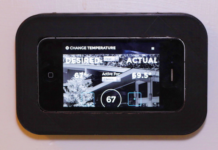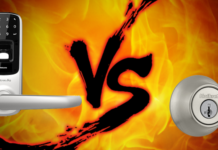An Alexa skill’s invocation name is the word or short phrase that is used to launch a skill. Great invocation names are memorable and explicit, making it easy for customers to understand what the skill can do and recall the invocation in the future when trying to access it.
While skills with memorable invocation names are particularly salient in a customer’s mind, developers also need to be aware of performance and accessibility. An invocation name’s success rate is integral to skill engagement. If a customer can’t successfully launch a skill, they can’t engage with the delightful voice experience you’ve created for them.
When choosing an invocation name, we always recommend starting with the invocation name requirements. In addition to these requirements, you may want to consider the following scenarios that can cause ambiguity and potentially decrease the customer’s rate of success when launching a skill. Here we share a few edge cases we’ve uncovered and ones you should be aware of when choosing an invocation name for your Alexa skill.
Words Borrowed from Other Languages
Invocation names that include words borrowed from foreign languages pose issues for customers for a few reasons. First, speakers may have difficulty pronouncing these invocation names with the appropriate accent, dialect, tone, or linguistic flair. This is particularly prevalent across languages that have different sound inventories or ways of speaking.
For example, the trilled “r” in Spanish may not be easy for all American English speakers to produce. Customers also may not know how to even attempt to say these invocation names, so it is advised that you avoid words that are potentially challenging to say. Additionally, the same way that humans may not recognize what foreign language another person is speaking in, Alexa may not be able pick up on the foreign language being spoken.
Potential Overlap with Alexa Features
Skills involving radio stations, TV shows, home appliances, or common pop culture entities may cause confusion with pre-enabled Alexa features that are available by default on any device, such as Music, Weather, Shopping Lists, Smart Home management, and Calling. If using an invocation name for a skill that could overlap with one of these Alexa features, be sure to test it to ensure Alexa is correctly routing to the skill when the invocation name is used.
For example, if your skill overlaps with a “weather” command, Alexa may occasionally respond with the Alexa weather feature, rather than your skill. When choosing an invocation name, proactive testing can help determine if this issue may be relevant to your skill. Remember to test several utterances including skill invocations with and without specific requests.
Invocation Names with Ambiguous Sounds
When checking invocation names, it is important to be aware of common linguistic patterns within the skill’s language to determine how these may affect invocation name recognition. The same way that you may not always hear the “g” at the end of “running,” or you may not recognize your Midwestern neighbor’s pronunciation of “Chicago,” Alexa may not be able to hear these variations in a customer’s language.
When picking an invocation name, consider all dialects of a language. As the invocation name requirements mention, your invocation name should be easy to pronounce correctly and be phonetically distinct to avoid being misinterpreted as other similar sounding words. It may also be helpful to try saying your invocation name three times fast—something like “Sally’s sea shore sea shells” may not be the best choice of invocation name when trying to launch an ocean-themed skill.
Unfamiliar Words and Brand Names
These invocation names may include purposefully misspelled words, brand names, or made-up words. Invocation names that include made-up words are unlikely to work well since they’re unfamiliar. The same way your friends may be confused the first several times you use a new word when speaking with them, Alexa may have similar initial confusion. If you are planning on using a brand name as your invocation name and would like assistance to make sure that your invocation name will launch your skill, consider submitting a request to our developer support team.
Formatting and Structure
Invocation names that could be represented in several different written forms may cause recognition challenges. For example, compound words like “goodmorning” could easily be recognized as “good morning.” Initialisms, acronyms, and abbreviations could be recognized in a multitude of ways. The letter “a,” for example, can be part of an acronym or a word in itself. Hyphenated invocation names will not pass certification for this very reason. These variations in formatting may not provide a consistent user experience when interacting with your skill, so make sure to test and double check your skill’s launch success rate when the format of the invocation name may be particularly complex. If your skill is not properly being invoked, choose a different invocation name with one explicit spelling instead.
Consider these specific cases when choosing an invocation name for your skill to improve a customer’s first interaction and, therefore, the customer experience. Remember that many of these edge cases can be accounted for by simply picking a “smart” invocation name. Testing your skill’s invocation name repeatedly to determine the number of times it launches successfully out of a large sample will allow you to determine just how consistently customers are reaching your skill.
Related Content
For more information on invoking skills, check out the following resources:
- Understand How Users Invoke Custom Skills
- Choose the Invocation Name for a Custom Skill
- Tips for Choosing an Invocation Name for Your Alexa Custom Skill






































